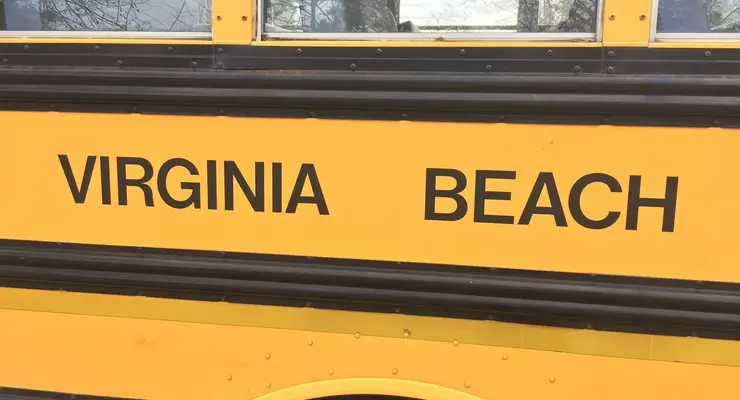Why School Safety Matters
Schools are meant to be safe, supportive places where children can learn, grow, and build confidence. For many families in Virginia Beach, school is more than just a place for academics. It’s a daily environment where trust is placed in educators, staff, and the systems designed to protect students.
When that trust is shaken, even slightly, it can leave parents feeling uncertain. Whether it’s a pattern of bullying, a lack of communication from staff, or more serious concerns about misconduct, safety issues can have lasting effects on a child’s well-being.
Being aware, staying involved, and knowing your options are key to helping protect your child and strengthening your school community.
When Something Feels Off
The earliest signs of a problem aren’t always easy to spot. A child might become unusually quiet after school or avoid talking about their day. Changes in behavior, mood, or sleep patterns can be subtle and easy to attribute to stress or growing pains.
But even small shifts may be meaningful. If your child becomes withdrawn, anxious, unusually angry, or resists going to school, it’s important to pay attention. You may also notice vague communication from school staff or a lack of follow-up when concerns are raised.
These moments, when nothing is clearly wrong but something feels different, often signal that closer attention is needed. Opening up calm, judgment-free conversations with your child shows them you’re listening and ready to support them.
Taking Action Within the School
If you’re concerned about something happening at school, the first step is usually to speak directly with a teacher, counselor, or administrator. Request a meeting and share what you’ve observed at home. Being specific and calm helps keep the conversation constructive.
Many issues can be addressed through early communication. The school might offer in-house counseling, staff check-ins, or mediation. It’s appropriate to ask how they plan to monitor the situation and keep you informed.
If the issue continues or doesn’t seem to be taken seriously, document everything. Keep notes on meetings, emails, and phone calls. This type of record is useful if you later need to escalate your concern beyond the school.
When schools see that a parent is engaged and consistent, they’re more likely to respond with care and attention.
Going Beyond the School: Reporting Abuse or Neglect
Some situations require immediate action outside of the school. If you believe a child is being harmed or exposed to abuse or neglect, report it without delay.
In Virginia, school staff are mandated reporters, but parents can report directly too. Contact Virginia Beach Child Protective Services or local law enforcement. Reports can often be made anonymously, and you don’t need proof—just a reasonable concern that something may be wrong.
If the concern involves a school employee, it’s especially important to report outside the school’s internal system. External reporting ensures the appropriate authorities are involved and helps create accountability beyond school administration.
These steps can feel intimidating. They exist to protect children and ensure serious issues are addressed properly.
When to Consider Legal Support
Sometimes, even after doing everything right—speaking up, reporting concerns, documenting what happened—families are left with unresolved issues and a child who still doesn’t feel safe.
Legal support can offer another path. It might involve understanding whether your child’s rights were violated, if proper procedures were ignored, or whether the school failed to act in a way that meets legal standards. In some cases, families may want to explore their legal options for school abuse cases to better protect their children and seek accountability.
Choosing to speak with a lawyer is a personal decision. It can help families feel more informed and supported during a difficult time.
Support Resources for Virginia Beach Families
Knowing where to go for help can make a stressful situation easier to manage. Virginia Beach offers several resources for families who are concerned about school safety.
The Virginia Beach City Public Schools Security Services page is a good place to start. It outlines safety protocols used across local schools, including emergency procedures and visitor policies. It also provides contact information for school security staff.
Families may also want to connect with local support services, including mental health providers and child advocacy organizations. These groups can offer assistance with reporting, emotional support, and guidance when the school’s response doesn’t feel like enough.
Mental Health Access in Virginia
After a safety issue or stressful school experience, emotional recovery can take time. Even when the immediate problem is resolved, children may continue to struggle with anxiety, behavior changes, or fear.
Virginia is working to improve access to mental health care, with resources available both in schools and through community providers. Some schools have licensed counselors or can refer families to local therapists who specialize in working with children and teens.
Parents can learn more about current statewide efforts by reading about how Virginia is increasing mental health access for residents. Early emotional support helps children feel safer, more stable, and better equipped to move forward.
Conclusion
Every child deserves to feel safe at school, and every parent deserves to be taken seriously when they speak up. When school safety breaks down, it’s difficult—but you are not without options.
Your involvement matters. Whether you’re asking questions, requesting meetings, reporting a concern, or seeking outside help, each step plays a role in protecting your child and strengthening your school community.
Trust your instincts, keep records, and act when something doesn’t feel right.

















